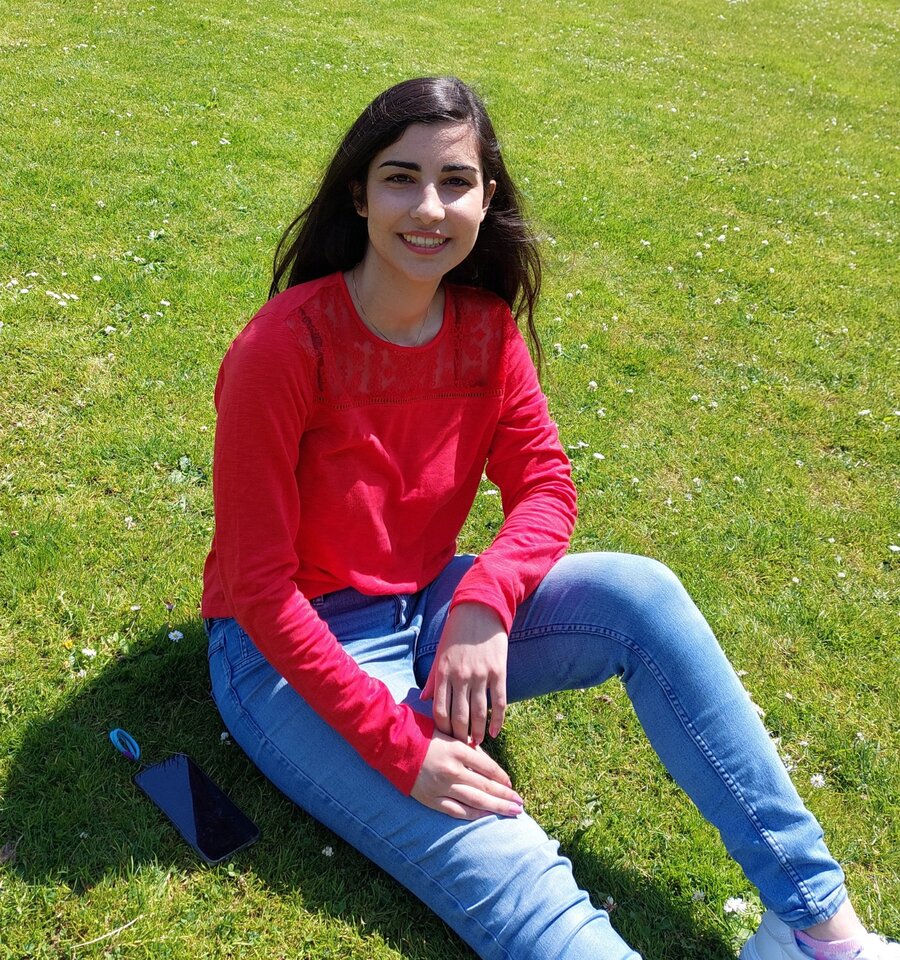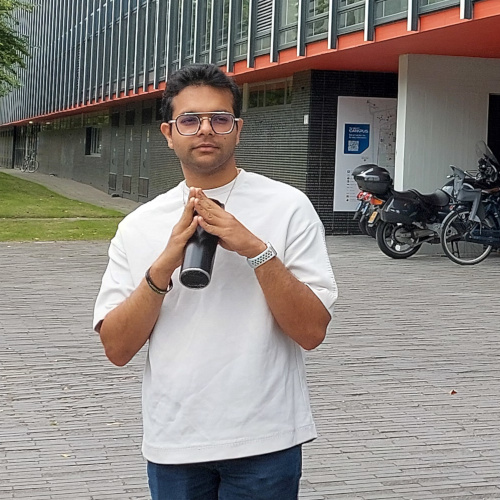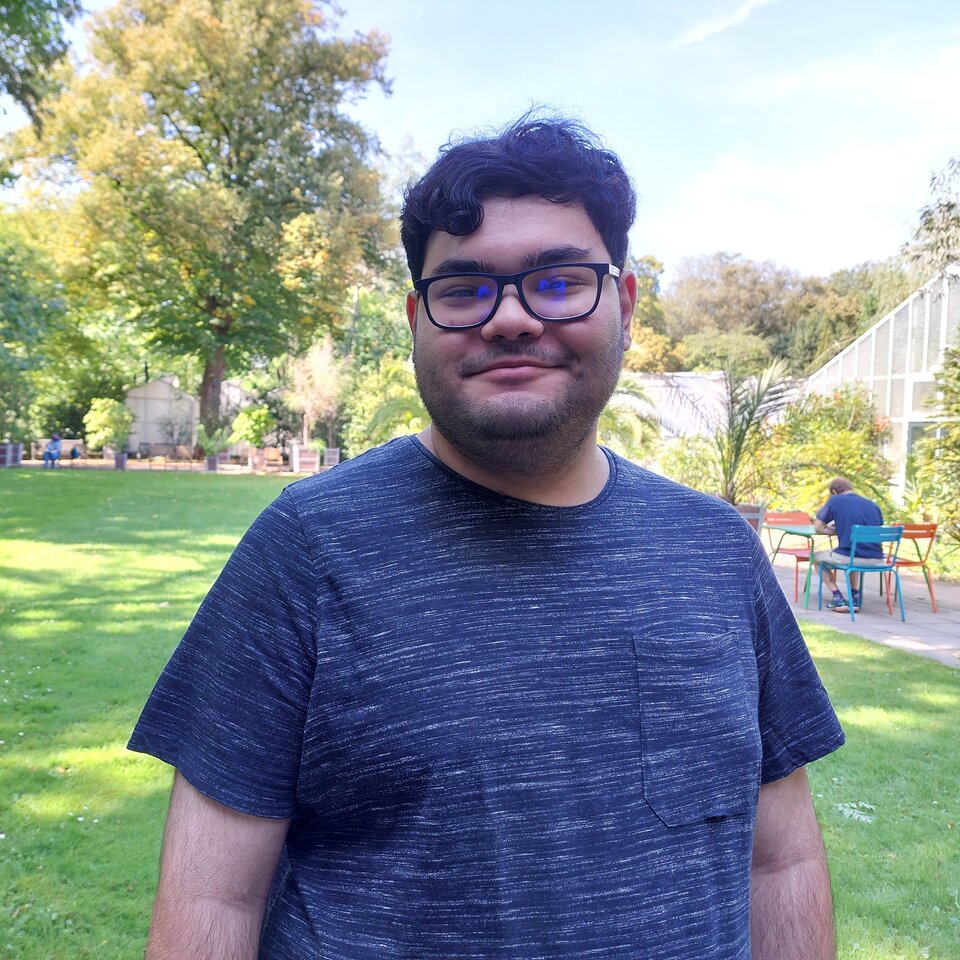Ana van Lieshout Titan did precisely this, applying mathematics to research different preventive interventions for tuberculosis. She conducted research at Harvard and published a paper in the leading medical journal The Lancet Global Health as a Bachelor’s student. Not only did she make an impact on the scientific world at a young age, but she also looked into the care of an overlooked vulnerable population, namely ex-prisoners.
What do you like about maths?
Ever since I was a kid I’ve enjoyed puzzling, and mathematics allows me to do this on a high level. It is fascinating that something as abstract as mathematics can be applied to real-world problems. It’s like a language that can both be used to describe issues, as well as provide solutions to those same issues. I think that that is really intriguing.
What do you like about studying at TU Delft?
I enjoy the atmosphere in Delft, both in the city and at the university. The courses are challenging, but I like how students often work together to figure it out. Outside of academics, I enjoy the student life in the city. There are many associations you can join, with a place for every hobby and interest, making it easy to meet new people.
Why did you choose the Bachelor of Applied Mathematics?
I chose the Bachelor of Applied Mathematics, due to its combination of theory and application on real-life problems. The study programme is broad and provides opportunities to interact with many areas of mathematics. Courses such as Modelling allow you to use the skills and methods taught in other courses on concrete problems.
What kind of internship did you do?
During my Bachelor of Applied Mathematics, I got an internship at Harvard, specifically Harvard's medical branch, namely the Harvard T.H. Chan School of Public Health. Harvard collaborates with the Brazilian Ministry of Health on health research, which includes tuberculosis research. I am half-Brazilian myself, so it seemed interesting and fun to do research in that area. And I can also read Portuguese, so that's very useful.
I was really happy with my supervisor at Harvard, Nicolas A. Menzies. In the beginning, it was difficult, because I didn't yet know exactly what I was going to do. I was quite young - I'm still young now, of course - but even more so then. I was given freedom by my supervisor at Harvard to set up the project myself, and there was also a lot of trust that I would be able to complete it. I was also very happy with the guidance from TU Delft. Professor Kees Vuik was enthusiastic about this project, and he was very helpful. I didn't feel like I was caught between two universities but was supported by both. And I was in charge throughout; it really was my project. That was very special!
During my Bachelor of Applied Mathematics, I got an internship at Harvard, specifically Harvard's medical branch, namely the Harvard T.H. Chan School of Public Health.
What was your research project focused on?
I focused on preventive tuberculosis intervention for formerly incarcerated individuals in Brazil. In 2021, an estimated 10.6 million people worldwide had tuberculosis. In the same year, 1.6 million people died of the disease, making it the number 13 cause of death worldwide. Tuberculosis is a disease with a very long incubation period. After you get infected, it can take years before you develop the disease. Most people who have the infection never develop the disease. But when you do, it is a very intense disease, with a lot of impact. Preventive drugs have been developed, keeping people who are already infected from developing symptoms and spreading the disease. But these are long regimens, consisting of many expensive drugs.
I began my internship with a literature review on groups of people disproportionally affected by tuberculosis. If I applied a strategy to such a group, I would see the greatest effect. In the review, I saw that, due to overcrowding, lack of hygiene, and poor ventilation, prisons act as amplifiers for tuberculosis transmission. Even after a person is released from prison, the risk remains high. It takes seven years after release for the risk of infection to return to that of the general population.
That's why I started focusing my research on formerly incarcerated individuals. It was full-on data research. I did a lot of computer work and coding. I looked at the population of ex-prisoners in Brazil amongst whom tuberculosis is common. I studied the effect different treatments have on this target group. How many life years are gained when people receive one treatment over the other? And how much does it cost for the government to provide that treatment? The findings of my study show that preventive treatment is highly cost-effective for this population, regardless of the chosen treatment. When comparing treatment options, shorter treatment was found to be more effective and cheaper.
Did you publish your research?
From the beginning, my supervisor at Harvard said: we are working towards a publication. When we actually started the process to publish, we went for the best journal, thinking that we were aiming a bit too high, and that we would try other journals until it was accepted. My supervisor had also prepared me: It's probably going to get rejected, and don't be sad when that happens. But then it was actually published, and that was truly unexpected, and really great!
What are your plans for the future?
In the future, I would like to focus on the application of mathematics. I like how mathematics can be used in real life. For now, I will focus on my master's degree first. And I do see myself in a research position in the future. I liked playing a role in research that helps others. I think that would be very nice for the future too!









